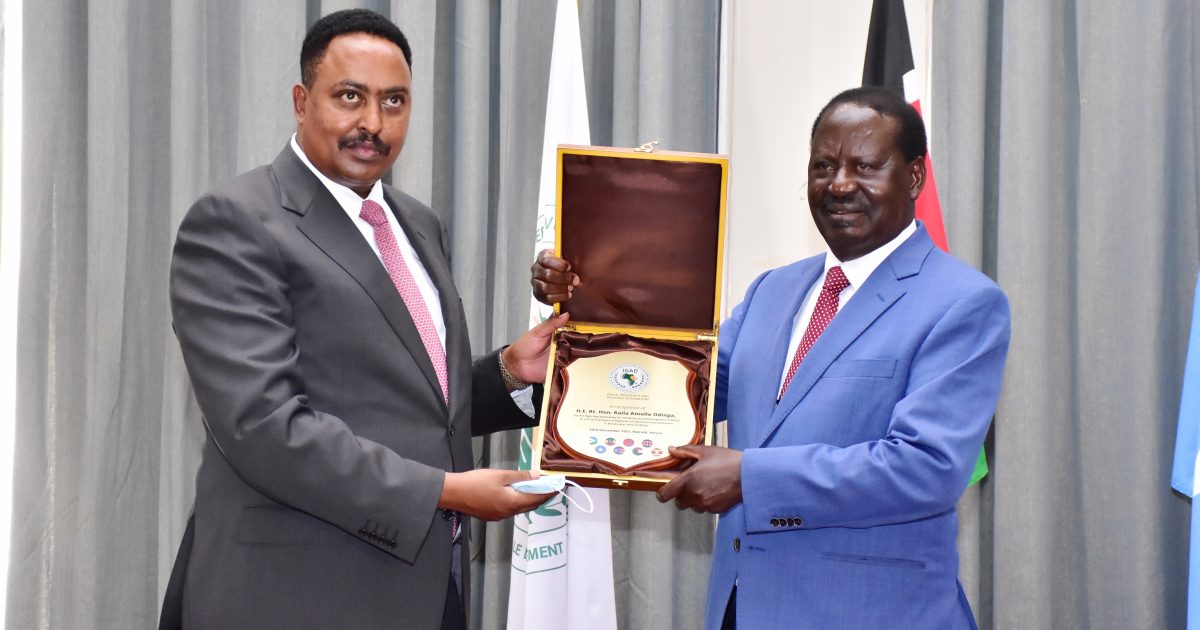The African Union High Representative for Infrastructure Development Raila Odinga has called on governments in the Horn of Africa to reverse the slow pace of action on infrastructure.
Speaking during the opening of a 3-day Development Partners Roundtable on Intergovernmental Authority on Development (IGAD) Regional Infrastructure, Odinga said infrastructure is the most important enabler of trade among African nations.
He said that regional priority projects needed to be incorporated in national development plans and also get prioritized in Regional Economic Communities’ infrastructure master plans.
Raila emphasized that each country must play its role for meaningful regional integration and trade to be realized.
“Africa’s infrastructure gap continues to remain wide and also continues to stifle the Continent’s socio-economic growth,” said Raila.
Raila said the IGAD Infrastructure Master plan has highlighted the short-term priority projects noting that there were 61 projects in transport, 9 projects in Energy, 14 projects in ICT, and 5 projects in trans-boundary waterways. The projects, Raila said, needed to be implemented by 2024, at a cost of US$ 34 billion.
“To realize our potential in intra-Africa and regional trade, we must invest in appropriate transport, energy and ICT infrastructure as a matter of priority,” added Raila.
He cited the Lamu Port, South Sudan, Ethiopia, Transport Corridor (LAPSSET) as a good example of a regional project whose implementation has been paralyzed by the lack of national ownership and failure by Regional Economic Communities to prioritize it.
Raila estimated that Africa’s road network deficit is at a minimum of 60,000 kilometers by 2040 while the rail network gap is estimated at 30,000 kilometers in the same period.
At the same time, he said that the continent urgently needs some 17 new airports and 7 sea ports.
Raila said that infrastructure projects that cut across national boundaries and were regional could all be developed simultaneously, with each country committing to do its part while the Regional Economic Communities (RECS) provide supporting and coordinating roles.
“With that spirit, the Kisumu-Malaba-Kampala Standard Gauge Railway line can be done in a fairly short time if Kenya and Uganda each commit to developing their respective segments,” said Odinga.
His sentiments were echoed by IGAD Executive Secretary Workneh Gebeyehu noting that the round table themed Interconnecting Member States for Regional Integration and Trade Competitiveness, aimed at creating awareness, build confidence and secure support for the policy initiatives and priority investments as reflected in the IGAD Regional Infrastructure Master Plan (IRIMP).
“Our region is constrained by low stock of infrastructure and inadequate infrastructure shaves off at least 2 per cent of Africa’s annual economic growth. As a consequence, regional integration has fallen short of expectations,” said the Executive Secretary.
However, Gebeyehu said that establishment of adequate infrastructure would lead to productivity gains by African firms of up to 40 per cent.
By Catherine Muindi





